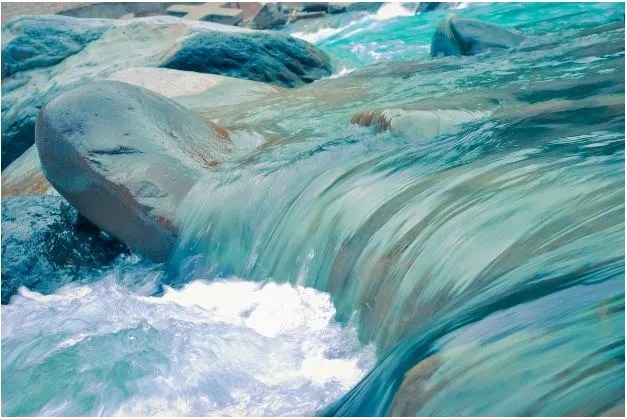
Navigating the science behind the water cycle can be daunting without knowing where to look for accurate and up-to-date information. In order to make your search a little bit easier, here are some reliable materials that can help you dive deeper into an understanding of this natural phenomenon. Whether you are a complete beginner or looking for a few more resources to help you understand this complex topic, there are plenty of options to help you along the way.
Take Advantage Of The Wealth Of Online Resources Available To You
Whenever people are looking for information on pretty esoteric subjects, the first place they turn to is, of course, the internet! Consequently, it’s probably wise to follow the crowd in this regard and make extensive use of the plethora of information that exists on the world wide web. Moreover, if you have kids interested in the subject, you can usually find plenty of lesson materials for the water cycle that are relatable to kids of a certain age and will teach them everything they need to know in order to progress. Another interesting option for all ages is to head over to websites dedicated to expanding human knowledge, like TED Talks et al., which can give you an overview of how the water cycle works and any unique techniques used in different regions around the world.
Do It The Old-Fashioned Away And Dip Into A Textbook For A Comprehensive Overview
Although the old-fashioned ways aren’t always the best way to begin your journey, they can be a fantastic way to dig deeper into subjects that aren’t covered as extensively as others. As such, when you want to study something specific, like the water cycle, one of the best things you can do is consult a textbook. The only real disadvantage regarding this option is that textbooks tend to get out of date pretty fast, which is why you should always double-check the edition before selecting a book. Nonetheless, with a subject like the water cycle, the only info that will become outdated is that of specific geopolitical factors, which tend to change rapidly (such as the effects it might have on the foreign relations of different countries that are most affected by the impacts of climate change, etc.).
Put Your Headphones On And Listen To A Podcast
Podcasts have exploded in popularity over the past few years for reasons outside of the scope of this article. However, the point is that because of their sudden popularity, there are now more science-related podcasts than ever before. This is excellent news for the scientifically minded as you can often discover a wealth of shows dedicated to all manner of subjects, as long as you can find them. Fortunately, there are online tools you can use to find almost anything imaginable…even on the water cycle!

Utilize Virtual Reality Systems To Get An Immersive Experience
Unfortunately, this option may not be available to everyone for cost and availability reasons, but if you are able to give it a whirl, you will be richly rewarded. Furthermore, this is arguably one of the best ways to teach younger kids about subjects that they perceive to be boring, but once they become immersed, they will see it in a new light. Moreover, some systems even enable you to alter the environment on the fly and see the effects they have in real-time. This can be an incredibly engaging way to learn more about the topic and gain deeper insights into how vital it is to maintain an equilibrium. Moreover, with VR, you can also step into different timelines and witness how things might have been 50 years ago compared to now, giving you an even deeper understanding of how the water cycle affects the world as you know it.
Find A Relevant Scientific Channel On YouTube
YouTube has become the go-to video channel for those wanting to see almost anything imaginable, from the latest music video to…you guessed it, the water cycle! It is a brilliant resource and can be utilized by people of all ages. Similar to other online resources and podcasts, you will have to search through a fair amount of useless videos before you hit upon gold, but once you find one, you’ll be happy you spent the time digging!

Subscribe To A Paid Service Like Masterclass
Along with the raft of free resources readily available, you can also find plenty of paid options that claim to go in-depth on various subjects. The one that comes to mind right away is Masterclass, which recruits experts in a range of fields to teach those who pay for the class. One of the best aspects of that particular service is that the courses tend to be relatively affordable, and the payments are a one-off. Additionally, because a service like Masterclass is more selective in who they hire to teach, it’s more likely that your lecturer will be a specialist on the subject, making the lessons even more valuable.
Take An Online Degree On The Subject
If you really want to go deeper into the subject (and you should consider it as it’s an incredibly fascinating subject), you might want to consider taking an online class culminating in some form of qualification or certification. Almost all major colleges and universities now offer a variety of courses online; in some cases, you’ll have to pay, but in others, they offer them completely gratis! If you like the sound of this, you should take some time to research the best options open to your level of education and think about what you want to achieve. For example, some classes will require credits from previous coursework to apply. In contrast, others take a more laissez-faire attitude and allow you to sign up as long as you understand what you’re getting into. Nevertheless, once you have gained your qualification, you will gain a much more profound understanding of the subject and how to apply specific learning methods to enhance your knowledge further if you want to know more.
With the right resources, you can master this complicated process and build a foundation on which to explore other sciences like climate change and how they affect the world. So start exploring the water cycle with these study aids, and make sure to have fun in the process!




